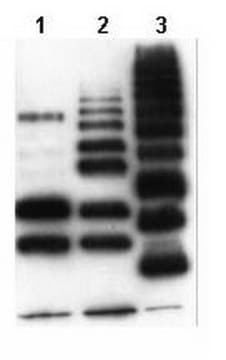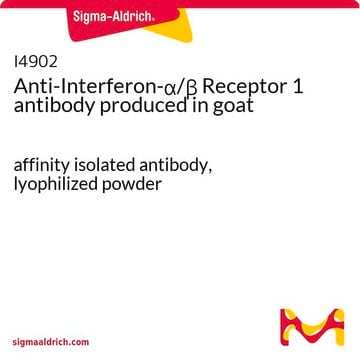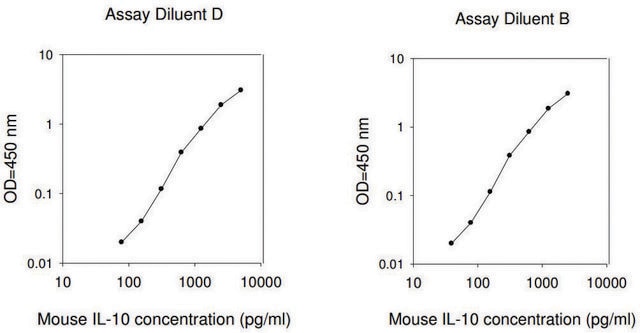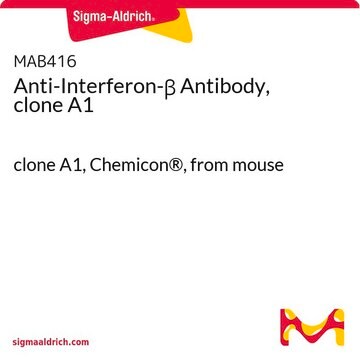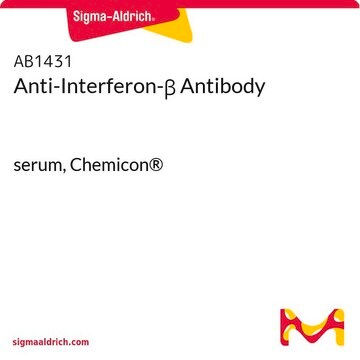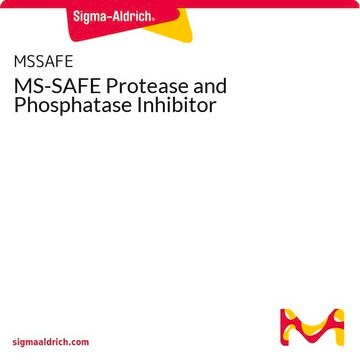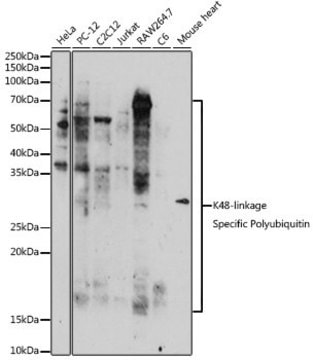General description
We are committed to bringing you greener alternative products, which adhere to one or more of The 12 Principles of Green Chemistry.This antibody is Preservative-free, produced without the harm or sacrifice of animals and exceptionally stable to allow for ambient shipping and storage if needed and thus aligns with "Waste Prevention", "Designing Safer Chemicals" and "Design for Energy Efficiency".
Click here for more information.
ZooMAb antibodies represent an entirely new generation of recombinant monoclonal antibodies.
Each ZooMAb antibody is manufactured using our proprietary recombinant expression system, purified to homogeneity, and precisely dispensed to produce robust and highly reproducible lot-to-lot consistency. Only top-performing clones are released for use by researchers. Each antibody is validated for high specificity and affinity across multiple applications, including its most commonly used application. ZooMAb antibodies are reliably available and ready to ship when you need them.
Learn more about ZooMAb here.Specificity
Clone 4F5 is a ZooMAb rabbit recombinant monoclonal antibody that specifically detects human interferon-β.
Immunogen
His-tagged full-length mature human recombinant Interferon- beta.
Application
Anti-Interferon-b, clone 4F5 ZooMAb, Cat. No. ZRB1517, is a recombinant Rabbit monoclonal antibody that targets Interferon-b and is tested for use in Affinity Binding Assay, Flow Cytometry, Immunohistochemistry (Paraffin) and, Western Blotting.
Flow Cytometry Analysis: 1 μg from a representative lot detected Interferon ? in one million Jurkat cells.
Immunohistochemistry (Paraffin) Analysis: A 1:100 dilution from a representative lot detected Interferon ? in human small intestine tissue sections.
Affinity Binding Assay: A representative lot of this antibody bound human recombinant interferon ? with a KD of 1.5 x 10-8 in an affinity binding assay.
Note: Actual optimal working dilutions must be determined by end user as specimens, and experimental conditions may vary with the end user
Target description
Interferon beta (UniProt: P01574; also known as IFN-beta, Fibroblast interferon) is encoded by the IFNB1 (also known as IFB, IFNB) gene (Gene ID: 3456) in human. Interferons are divided into three families (type I, II, and III) based on their sequence homology. Type I is the largest group that includes Interferons alpha and beta. Interferons are the primary defensive cytokines against pathogens and display strong antiviral activities. They also display anti-bacterial and anti-cancer properties. Interferon beta is a fibroblast generated monomeric cytokine that is synthesized with a signal peptide (aa 1-21), which is subsequently cleaved off to generate the mature form. Signaling by interferon beta involves its binding to IFNARR1-IFNAR2 heterodimeric receptor, which regulates the expression of several genes by JAK/STAT pathway. However, it can also function by binding to INFAR1 alone and independently of JAK/STAT pathway. In immune cells it reduces antigen presentation and T cell proliferation and alters matrix metalloproteinase expression. Interferon beta is reported to reduce the levels of proinflammatory cytokines and increase the levels of anti-inflammatory cytokines. Interferon beta displays about 30% amino acid sequence homology with interferon alpha (produced by leukocytes), however, they both share the same receptor and have very similar biological activities. They both confer resistance to viral infections on target cells, inhibit cell proliferation and regulate expression of MHC class I. This ZooMAb recombinant monoclonal antibody, generated by our propriety technology, offers significantly enhanced specificity, affinity, reproducibility, and stability over conventional monoclonals. (Ref.: Li, S., et al. (2018). Cell Physiol Biochem. 51(5); 2377-2396).
Physical form
Purified recombinant rabbit monoclonal antibody IgG, lyophilized in PBS with 5% Trehalose, normal appearance a coarse or translucent resin. Contains no biocide or preservatives, such as azide, or any animal by-products. Larger pack sizes provided as multiples of 25 μL.
Reconstitution
300 μg/mL after reconstitution at 25 μL per vial. Please refer to guidance on suggested starting dilutions and/or titers per application and sample type.
Storage and Stability
Recommend storage of lyophilized product at 2-8°C; Before reconstitution, micro-centrifuge vials briefly to spin down material to bottom of the vial; Reconstitute each vial by adding 25 μL of filtered lab grade water or PBS; Reconstituted antibodies can be stored at 2-8°C, or -20°C for long term storage. Avoid repeated freeze-thaws.
Legal Information
ZooMAb is a registered trademark of Merck KGaA, Darmstadt, Germany
Disclaimer
Unless otherwise stated in our catalog or other company documentation accompanying the product(s), our products are intended for research use only and are not to be used for any other purpose, which includes but is not limited to, unauthorized commercial uses, in vitro diagnostic uses, ex vivo or in vivo therapeutic uses or any type of consumption or application to humans or animals.

